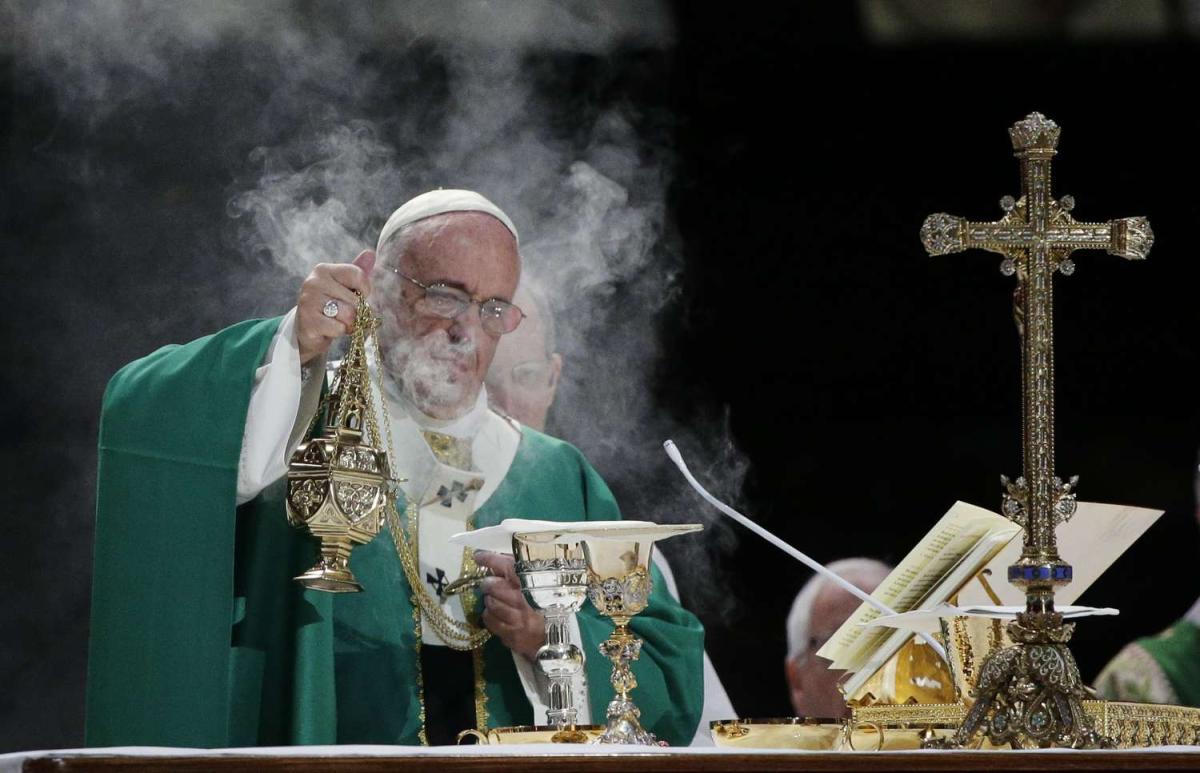
Worship is both a private and communal practice. We are all led individually when communing with the Lord in private, but when we’re together, there is a much enhanced blessing to enter as a group, as the Holy Spirit leads us.
During the ongoing debate around contemporary worship, it has often been suggested that such worship is manipulative, manufacturing emotion rather than authentically praising God. There have been confessional articles written by ex-worship leaders, admitting they were forcing and faking emotion during their ministries, but the assumption seems to be that if they were producing the counterfeit, everyone else must be doing the same. In response to these confessional articles, I’m going to offer the opposite – a demonstration of the real deal.
The Lord Brings the Increase
I want to be clear – worship leaders do not (and absolutely cannot) generate a truly divine atmosphere. All they do is open the door to God. In 1 Corinthians 3:7, Paul addresses the petty squabbles among believers, claiming to follow either him or another chap called Apollos:
So neither the one who plants nor the one who waters is anything, but only God, who makes things grow.
In another translation it says: ‘the Lord brings the increase’. I love that. Our job is to open the door but it is the Lord who acts. For example, Moses was commanded by God to extend his staff over the Red Sea, in response to which God would part the waters to lead the Jewish people to safety. Moses had no power in himself to part the Red Sea, but he could hold a stick, and that’s all that was required for that great miracle to be performed. The Lord is the one who does the actual work.
James 5:17-18 expresses it this way:
Elijah was a human being, even as we are. He prayed earnestly that it would not rain, and it did not rain on the land for three and a half years. Again he prayed, and the heavens gave rain, and the earth produced its crops.
Whether we’re praying as led by the Spirit, holding out a stick, or picking up a guitar, our part is the smallest and least important – the mere opening of a door – and yet without it, God is not free to move. We are his hands and feet in the Earth, and obedience is required to release God’s power.
The Privilege of Leading Worship
On New Year’s Eve 1996/97, the missionary community I was part of (approx. 350 people from over 30 different nations) was gathered for a celebration, and I was to lead the worship. The organisation was Conservative/Reformed, and Charismatics like me were very much a distrusted minority. I was once asked to lower my hands when praying in a public space, in case visiting leaders from Germany saw me. Spiritual gifts were not permitted in any of the services, but I used to sneak words of prophecy in under the radar.
On this occasion I had clear leading from the Lord. We were to start with an old, simple song many readers will be familiar with:
God forgave my sin in Jesus’ name
I’ve been born again in Jesus’ name
And in Jesus’ name I come to you
To share his love as he taught me to
He said: ‘Freely, freely, you have received
Freely, freely give
Go in my name and because you believe
Others will know that I love.’
There are two further verses that lead back to the chorus of ‘Freely, freely…’
The word of the Lord was simple, so I put the words of the song on the screen and asked the congregation to do something a little different. I reminded them of the Biblical exhortation to resolve any issues among ourselves before taking communion. We all lived and worked together in an environment that was stressful and highly pressured – fallouts were plentiful. I felt the Lord’s encouragement to wipe the slate clean, say our sorrys, ask for and extend forgiveness, and be reconciled to one another. To protect people’s privacy, I suggested that anyone who didn’t feel the need to do this circulate and greet others with love.
We began to sing, and for a short while nobody moved, but then one chap got the ball rolling. Others began to do the same, and before long the entire congregation was talking, embracing, and loving each other. It was utterly wonderful, and once we moved into the worship time proper, the congregation was unified, joyful, and in a great place to meet with God.
The rest of that celebration was like Heaven on Earth. I don’t remember the song list, but I do remember the atmosphere. People who I’d never seen raise their hands or show emotion in worship were swept up by the love of God. Some were crying in gratitude, others grinning from ear to ear, and almost everyone was lifting hands to Heaven – a sight that was rare as hen’s teeth in our dry, Conservative Evangelical community. The final song was an anthem of praise – Jesus shall take the highest honour, which finishes with the chorus:
All honour, and blessing, and power
Belongs to you, belongs to you
Lord Jesus Christ, Son of the Living God.
The presence of God was palpable, and as one, the community abandoned itself in Spirit-filled praise. As the worship leader, I was conscious of the joyful outpouring of the Spirit of God, but what moved me the most was the way the community embraced the blessing. I’d never seen them like that, nor known such a tangible sense of unity – we were absolutely in it together, sharing the same experience, inspired and made joyful as one. Afterwards, dozens of people told me of their experience, and all I spoke to had shared the same encounter.
This is true communal worship – when we’re drawn together and unified by the Spirit of God. It is an essential part of how God edifies his people and serves his ultimate aim, which is to bring all things and all people into unity under Christ. Ephesians 1: 8-10:
With all wisdom and understanding, he made known to us the mystery of his will according to his good pleasure, which he purposed in Christ, to be put into effect when the times reach their fulfilment – to bring unity to all things in heaven and on earth under Christ.
During times of communal worship/prayer/devotion, the Lord actively brings his people together through the ministry of the Spirit and the obedience of those who are sensitive enough to hear and follow his leading. 1 Peter 2: 4-5,
You also, as living stones, are being built up a spiritual house, a holy priesthood, to offer up spiritual sacrifices acceptable to God through Jesus Christ.
We are being built together into a spiritual house! The Spirit of God, if not quenched, resisted, or grieved, builds the bonds between us in prayer, worship, teaching, and fellowship. In this living community, where each of us is a moving part, the Charismatic gifts of the Spirit are essential, as is the presence and leading of the Holy Spirit. Without his leading, our services are just carnality, playing at church instead of being the Church.
Don’t be misled
Authentic encounters with God will always require sensitivity to the Spirit, and involve the natural emotion of the creation responding to the love of the Creator. Emotion is not to be distrusted, in and of itself, unless we intend to separate faith from that which makes us human. Individual emotion is important, but when the Lord leads his people into true unity, saturated by his love and responding to his leading as one, we can share the experience of his presence communally. Just as he did on New Year’s Eve, 1996/97, the Lord desires to lead us collectively, as a family, for the blessing and uplifting of all.
This will be my final article on Contemporary Worship and emotion in worship, so I want to finish with some advice – don’t be misled by those who criticise demonstrative worship and shy away from emotions in spiritual encounters. They are running from themselves, objecting to what they see as counterfeit worship, but entirely failing to recognise and encourage the authentic experience of God’s presence. I urge all readers to seek greater intimacy with the Lord, in personal prayer, when meditating on the scriptures, and yes, in times of communal worship.
Lord, soften the hearts of your people to know and love your presence. Turn us from intellectual games and endless debate, and back to seeking a deep, authentic walk with you. Have mercy on those resisting and quenching the Spirit, and bring them back to their first love.
Note from the author: I love writing about faith and will continue to do so for as long as Patheos’ welcome is extended, but to be clear, there’s no pay for this. The time devoted to putting out spiritual articles could be spent earning a crust, which makes it a passion project and a personal sacrifice. That said, I am hoping that some who are ministered to or otherwise helped by my writing will become partners/financial supporters – any regular amount pledged through Patreon will be gratefully received, as well as a considerable encouragement.












